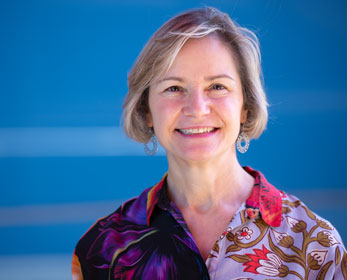Researchers from Edith Cowan University's (ECU's) Social Ageing (SAGE) Futures Lab will present their latest findings and lead innovative workshops at the 2024 Age Friendly Australia National Conference at Crown Hotel, Perth.
Hosted by LG Professionals WA in collaboration with the Department of Communities and the World Health Organisation, the 2024 Age Friendly Australia National Conference on 4 and 5 December is gathering local and international experts to share knowledge and initiatives that enrich the lives of older adults.
The program includes presentations on innovative frameworks and collaborative approaches to building age-friendly communities involving government, non-profit organisations, universities, community groups and health providers.
ECU researchers will be actively involved across multiple sessions, sharing their expertise on social ageing, digital inclusion, and the needs of culturally and linguistically diverse (CaLD) and LGBTIQA+ older people.
Day two of the conference (Thursday 5 December) features an opening keynote address from leading migration scholar ECU Professor Loretta Baldassar followed by three ECU-led sessions.
Opening keynote address: A social ageing revolution for diverse age friendly futures
Loretta Baldassar is a Professor of Anthropology and Sociology and leads ECU's Social Ageing (SAGE) Futures Lab. Her opening keynote address will explore how the age friendly ecosystem framework, which takes a holistic environmental and intergenerational approach, helps us to better understand our age friendly futures. She brings new insights to the model through the lens of migration and care, arguing that migration is an aged care issue and aged care is a migration issue.
Globally people are living longer and spending more time in older age than ever before. In Australia, with 1 in 3 people over 65 born overseas, our ageing population is among the most diverse in the world. Such population trends and complexities demand we change the way we think about, and prepare for, growing older. One approach, explored in this lecture, is inspired by the notion of ageing futures – a notion that highlights the social revolution needed to re-imagine our relationship to ageing.
We know older migrants access services later and in poorer health than the general population, and that culturally appropriate services, particularly dementia services, are sorely lacking. And yet, a significant – and growing – proportion of our aged care workforce is made up of migrant workers, who also have the lowest rates of job satisfaction and retention.
Central to these service delivery and workforce challenges are our increasing temporary migration pathways, which create transnational families whose members are separated by distance – creating new (and smart) forms of caring and ageing, including across distance.
Workshop: Using population data to understand diversity
Dr Lukasz Krzyzowski and Dr Catriona Stevens
This workshop explores the complexities of measuring diversity in ageing LGBTIQA+ and CaLD communities. Participants will engage with key concepts and terminology, examining their impact on data collection, policy, and inclusive practices. Topics include the nuances of terms like 'CaLD,' the '+' in LGBTIQA+, inclusive language, and challenges with labels like 'queer'.
Understanding Social Frailty
Dr Manonita Ghosh and Dr Hien Nguyen
Frailty in older adults has traditionally been seen through a physical lens. However, it is now understood to include social aspects, affecting physical and mental health.
A new tool developed by researchers from ECU's SAGE Lab includes data from over 400 participants and is investigating social frailty through five core components - financial resources, literacy, social engagement, support networks, and wellbeing.
Addressing Ageism and Elder Abuse
Dr Trish Cain, Associate Professor Eyal Gringart, and Dr Catriona Stevens
This presentation tackles the ongoing challenges of ageism and abuse, offering practical strategies informed by psychology and social care research.
ECU's Social Ageing (SAGE) Futures Lab focuses on research to create supportive communities that enhance people's social relationships and networks as they age. By combining social connections with technology, the Lab helps extend care and support across all ages and places, including local and virtual communities, with a special emphasis on culture, diversity, and inclusion. This vision encourages society to rethink ageing, especially relevant to Australia, where many older people have diverse backgrounds and needs.
To find out more about their innovative research and projects visit the ECUs Social Ageing (SAGE) Futures Lab webpage.
For more information on the Age Friendly Australia National Conference visit the conference webpage.

 Researchers from ECU's Social Ageing (SAGE) Futures Lab will present their latest findings and lead innovative workshops at the 2024 Age Friendly Australia National Conference.
Researchers from ECU's Social Ageing (SAGE) Futures Lab will present their latest findings and lead innovative workshops at the 2024 Age Friendly Australia National Conference.



